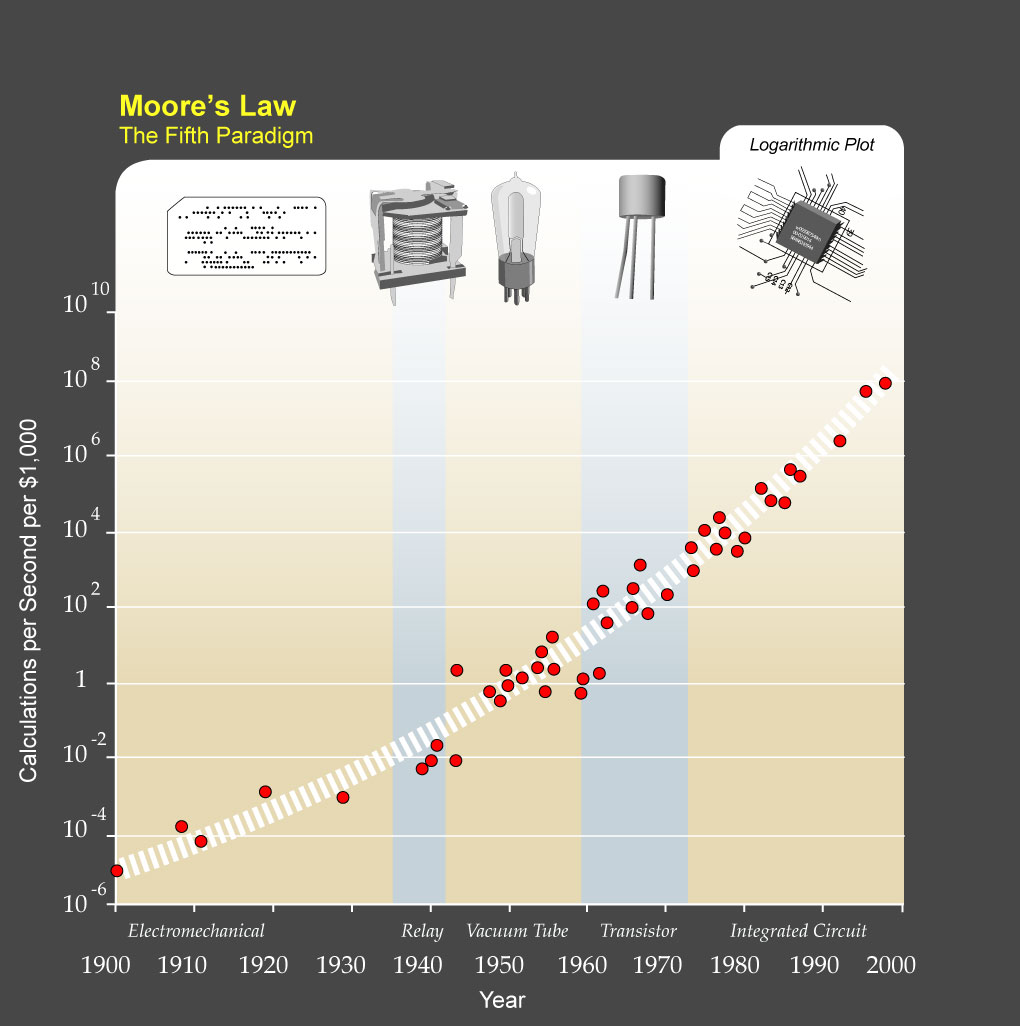According to Moore's Law (1), "the number of transistors on a given chip can be doubled every two years." This is corresponds to similar trend in the increase in the amount of information over time which supports the idea of information overload. However, society should focus on addressing filter failure instead of just information overload. In the assigned video,Mr Shirky makes valid points that support filter failure and criticize information overload as an explanation of society's trends. In the assigned video, Mr Shirky proposed that we are in and have been in a state of information overload for the last 600 years. The amount of avalible information has increased since the printing press was introduced. During this time period, distributing information required large amounts of money. This forced producers to filter for quality. In fact, now, information overload is no longer the most relevent reason we are changing the way we recieve information. The cost of distributing information has decreased to the point that quality of information is becoming a global problem.
An example, given in the video, of unwanted and unsolicited online information that ideally should be filtered is spam email.
Spammers have developed advanced techniques to bypass filters meant to block their spam. According to mydigitallife.info/,"Spammers have come up with ways to avoid detection or filters. The use
of JPG or GIF images rather than text messages can elude image filters
as there are no two images that are the same. The images are randomly
produced through colored dots in the background. Spammers even use 3-D
images which totally fool image filters."
The effects of spam on the global and national economy are staggering. According to wikipedia ,"A 2004 survey estimated that lost productivity costs Internet users
in the United States $21.58 billion annually, while another reported the
cost at $17 billion, up from $11 billion in 2003. In 2004, the
worldwide productivity cost of spam has been estimated to be $50 billion
in 2005.[49] An estimate of the percentage cost borne by the sender of marketing junk mail (snail mail) is 88%, whereas in 2001 one spam was estimated to cost $0.10 for the receiver and $0.00001 (0.01% of the cost) for the sender.[7]"
Also notably, "Leung argues that spam makes economic sense, despite minuscule response rates, because spam can be sent at "virtually no cost to spammers". Spam, unlike conventional junk mail, is growing exponentially because it costs virtually nothing to send and all the costs of dealing with spam are dumped on its recipients."
These examples lead us to the conclusion that filture failure is a better explanation to the problems that internet users are encountering with respect to information.
We are now faced with the possibility with misinformation and have to keep a close eye on the credibility of online information.

http://upload.wikimedia.org/wikipedia/commons/thumb/c/c5/PPTMooresLawai.jpg/200px-PPTMooresLawai.jpg